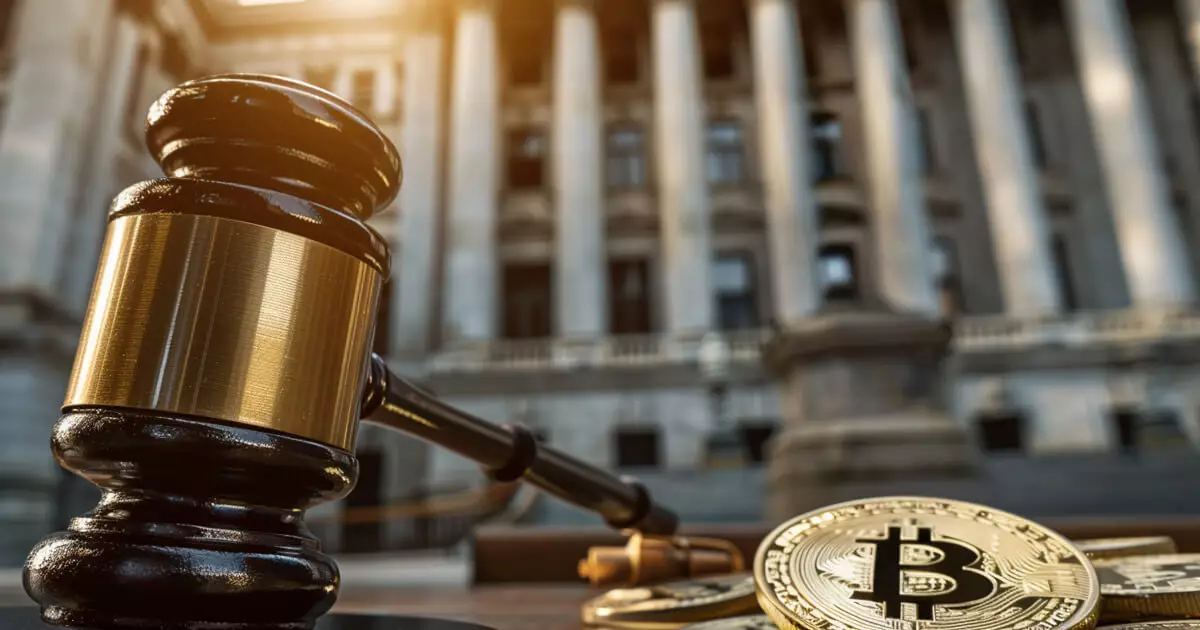The rapidly evolving landscape of cryptocurrency regulation has sparked a new wave of advocacy emphasizing state-level protections for Bitcoin self-custody. Pioneering efforts led by the Satoshi Action Fund aim to establish a network of “safe haven” states that provide residents with legal backing for holding and utilizing Bitcoin. This initiative draws inspiration from the cannabis industry, which successfully navigated a complex web of federal regulations by promoting state legislation. The fundamental idea behind this push is that state law can provide a buffer against federal regulation, thus creating environments where Bitcoin culture can flourish.
Dennis Porter, the CEO and co-founder of the Satoshi Action Fund, asserts that state legislation can supersede federal directives in certain circumstances. He emphasizes, “If federal law contradicts state law, the federal government must enforce it without compelling state or local law enforcement to cooperate.” Porter’s arguments echo a historical approach where localized movements, such as civil rights and same-sex marriage, initiated change at the state level before achieving nationwide acceptance. This context illustrates the potential for transformative societal shifts to begin outside of federal endorsement, a dynamic that advocates for Bitcoin self-custody hope to replicate.
Despite the enthusiasm surrounding state-centric legislative strategies, there remain significant challenges, particularly concerning the supremacy of federal law. Legal experts like attorney Joe Carlasare caution that while self-custody of Bitcoin might have strong advocates, federal law is supreme over state law in most cases. Carlasare maintains, “What matters is whether the federal government chooses to preempt state laws.” While he concedes that he does not believe the federal government can rightfully ban Bitcoin self-custody, his concerns about the enforceability of state laws in opposition to federal statutes highlight potential pitfalls for advocates.
Another angle to this debate involves the actual effectiveness of the cannabis analogy used by Porter to advocate for Bitcoin. Carlasare articulates the weaknesses in this comparison, noting that while cannabis possession remains illegal federally, it is largely tolerated by federal law enforcement when it involves small-scale possession. Such leniency has allowed the cannabis sector to thrive without direct opposition, a luxury that might not extend to Bitcoin advocates should federal agencies decide to pursue stricter regulatory action.
One of the most illuminating examples of state-level advocacy for Bitcoin is found in Pennsylvania’s recent passage of House Bill 2481, the “Bitcoin Rights” bill. Passing with overwhelming bipartisan support (176-26), the legislation delineates residents’ rights regarding the self-custody of digital assets while also establishing a framework for taxing digital asset transactions. This legislative move is significant within the context of state-led initiatives aimed at securing crypto-friendly environments, all while federal regulations remain nebulous and slow to evolve.
Pennsylvania is a critical player in the national cryptocurrency debate, especially given its status as a pivotal swing state with around 1.5 million crypto owners. The political dynamics in the state can influence other jurisdictions to adopt similar protective measures for cryptocurrency holders. Advocates hope that Pennsylvania’s steps serve as a model for other states, particularly in light of ongoing deliberations from federal entities like the SEC and CFTC regarding digital asset legislation.
While the state-level efforts for Bitcoin self-custody rights signify a significant movement toward more robust legal protections for digital asset enthusiasts, the path forward is fraught with uncertainties. The effectiveness of these laws will largely depend on the willingness of federal authorities to respect state initiatives, given the overarching supremacy of federal law. Nonetheless, the burgeoning momentum at the state level indicates that advocates are eager to stake their claims, potentially reshaping the regulatory landscape for Bitcoin across the United States.
The outcome of these legislative efforts may play a crucial role in determining the future of Bitcoin custody rights and overall digital asset regulation, offering insights into a complex interplay of state and federal dynamics that could either support or stifle the cryptocurrency revolution. As initiatives like those led by the Satoshi Action Fund gain traction, they can serve as pivotal moments for Bitcoin advocacy and self-custody rights in the broader pursuit of regulatory clarity and acceptance.

